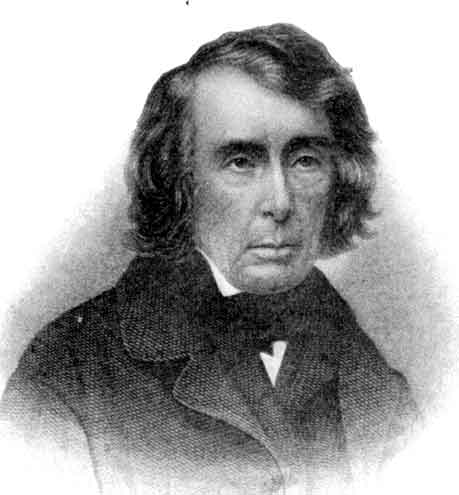Taney, Roger Brooke

Chief Justice of US Supreme Court
(1777-1864)
Roger Brooke Taney was born in Calvert County, maryland, on March 17, 1777. His father was a plantation owner in Maryland, and young Taney studied at Dickinson College. Graduating in 1795, he studied law, and was admitted to the bar four years later. Taney was elected to the state legislature in 1799, with the help of family and friends. Remaining active in politics without holding an elected position, he became a skilled orator. Taney also developed an ability to analyze legal technicalities. Taking a special interest in supporting legislation which protected the rights of Blacks in Maryland, both free and slave.
During the War of 1812, he led the minority Federalist faction supporting the government. In 1816, he was elected to the state legislature, in which he focussed on banking and currency policies. He became a Jacksonian Democrat when the Federalist Party dissolved, and worked as President Andrew Jackson's Attorney General (1831-33) and Secretary of the Treasury (1833-34).
Confirmed Chief Justice of the US Supreme Court in March of 1836, he was accused of being prejudiced toward the South. Taney felt that his judgements were based on the Constitution. He held that the Constitution did not give Congress the power to exclude slavery from the territories, although he had freed his own slaves. Taney believed that Blacks and Whites could not live together as equals, and he supported the colonization movement. Preferring a form of compensated emancipation, he nevertheless felt that slavery had to exist in the US as long as there were African Americans in the country.
Taney also opposed efforts by the North to interfere with Southern slavery. In 1857, he wrote the majority opinion in the Dred Scott Case, which overturned a Missouri court decision that had given Scott freedom. When they reversed the ruling, Taney and the majority of the Supreme Court asserted that slaves were not citizens, and, thus, could not sue for freedom in a court. Tanye went so far as to declare the prohibition of slavery in the territories unconstitutional.
Republicans and abolitionsts were angered by Taney's declarations, which made the Missouri Compromise null and void, and took away all rights of slaves. During the Civil War, Taney opposed Lincoln's arrests of citizens for disloyalty. When Taney died in Washington, D. C., on October 12, 1864, President Lincoln appointed Salmon P. Chase to replace him.
 >
>